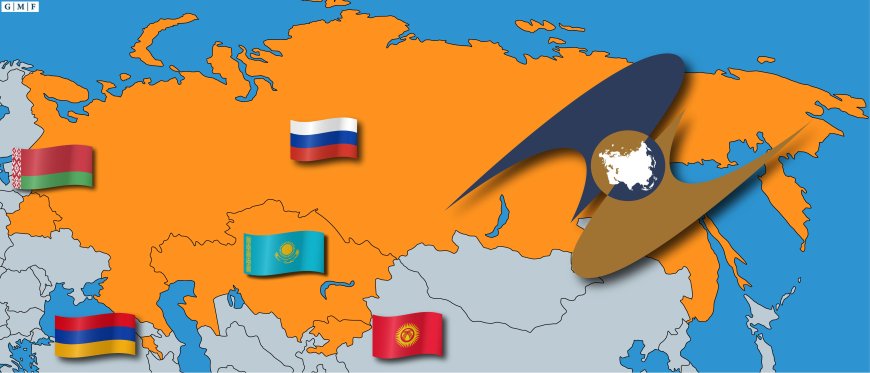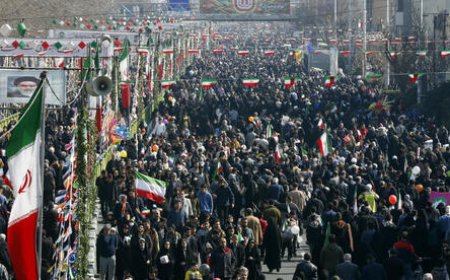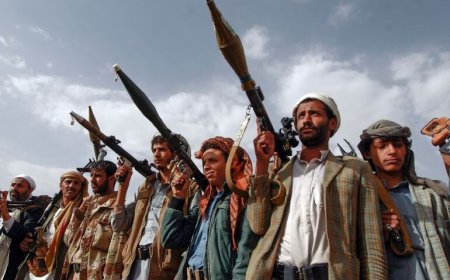Iran's Major Step Toward Free Trade with the Eurasian Union

Author: Navid Daneshvar
After nearly 28 months of the 13th government of the Islamic Republic of Iran under the presidency of the late president Dr. Seyyid Ebrahim Raisi, the policy of good neighborliness in foreign relations is proving successful. Following significant achievements in diplomacy, such as becoming a permanent member of the Shanghai Cooperation Organization and joining the BRICS group, signing a free trade agreement with the Eurasian Union marks another important step towards enhancing Iran's trade relations with other countries. This accomplishment adds another positive chapter to the government's record, ultimately benefiting Iran and its neighboring nations in the region.
First of all, it should be noted that the initial collaboration between Iran and the Eurasian Economic Union (EAEU), which includes Belarus, Kazakhstan, Russia, Kyrgyzstan, and Armenia, with observer members Uzbekistan, Moldova, and Cuba, began with the signing of a draft agreement on Preferential export tariffs in Yerevan in 2017. In 2018, this temporary agreement was signed by the parties for a three-year period. The permanent free trade agreement between Iran and the Eurasian Union is now ready to be signed pending approval from both parties. Once approved, this agreement will need to be ratified in order to take effect. The Islamic Council, along with other member assemblies of the Eurasian Union, will need to pass this agreement into law.
In this regard, the Minister of Trade of the Eurasian Economic Union, Andrei Slepnov, announced in August 2021 that negotiations on the permanent free trade agreement between the Eurasian Union and the Islamic Republic of Iran have concluded. This indicates that the text of the agreement is now ready to proceed through the required processes, including signing. We anticipate that approval will swiftly follow.[1]
Following the free trade agreement between the Islamic Republic of Iran and the members of the Eurasian Economic Union, signed in St. Petersburg, the text of this law was approved last year by the Islamic Council under the title "Additional Document Law (Protocol) on the Extension of the Temporary Agreement on the Formation of the Free Trade Zone." [2]The commercial agreement between the Islamic Republic of Iran and the Eurasian Economic Union and its member states was finally approved by the Guardian Council. Subsequently, it was either approved or is currently being implemented in other assemblies of the member countries. In the latter case, the Russian Duma approved this agreement and has granted permission to the Russian government to implement it.[3]
Now, after a brief period of time, we have witnessed the initial results of this agreement. We see that while making plans and efforts to implement this agreement as effectively as possible, the partnership and strategic cooperation agreement between Jihad Esteghlal Institute from Iran and the parent company "Agroexpress Eurasiai" with the goal of ensuring food security in the region and activating and strengthening all transportation routes between Iran and that union has been signed and delivered.[4]
It was noted that the Minister of Trade of the Eurasian Economic Union, Andrei Slepanov, also stated last year on the sidelines of the signing ceremony of the permanent free trade agreement between the parties in the city of Saint Petersburg, Russia that after the signing of the free trade agreement between Iran and the Eurasian Economic Union, the amount of trade between the two sides would be the first step. He also mentioned that within a period of five to seven years, it would reach 18 to 20 billion dollars per year.[5] This highlights the high importance of this agreement and its significant economic effects, as well as the efforts of the members of this agreement to follow up and implement it as best as possible.
In conclusion, it should be noted that the agreement to establish a free trade zone between the Islamic Republic of Iran and the Eurasian Economic Union marks the first step towards increased commercial and economic cooperation between Iran and Eurasia, along with its member countries. The ultimate goal is to create a large free trade zone encompassing Iran and Eurasia, emphasizing the expansion of mutual relations based on trust, transparency, and commercial facilitation. The innovative approach taken by the Islamic Republic of Iran, following the examples of Eurasia, Shanghai, and BRICS, holds the promise of transforming economic relationships. In practice, Iran can serve as a bridge between these countries, ultimately playing a key role as a common member of this triangle, leading to a stronger international position and further strengthening Iran.
[1]https://irna.ir/xjN5nD
[2] https://rc.majlis.ir/fa/law/show/1778626
[3] https://www.tehrantimes.com/news/499282/Russian-State-Duma-ratifies-FTA-between-EAEU-Iran
[4] https://eec.eaeunion.org/en/news/eaes-i-iran-dogovorilis-o-sotrudnichestve-po-proektu-evraziyskiy-agroekspress/
[5] https://irna.ir/xjPhXr













































